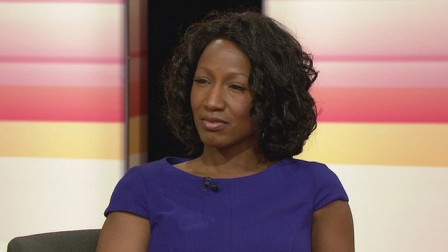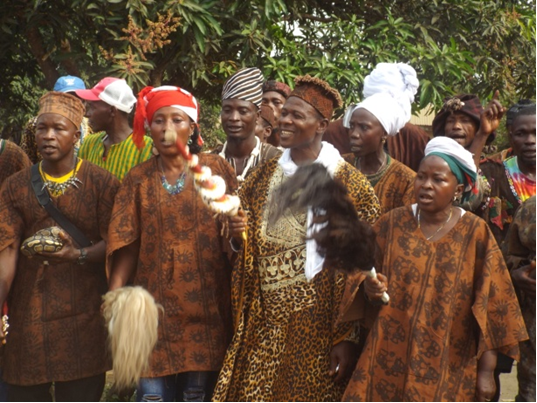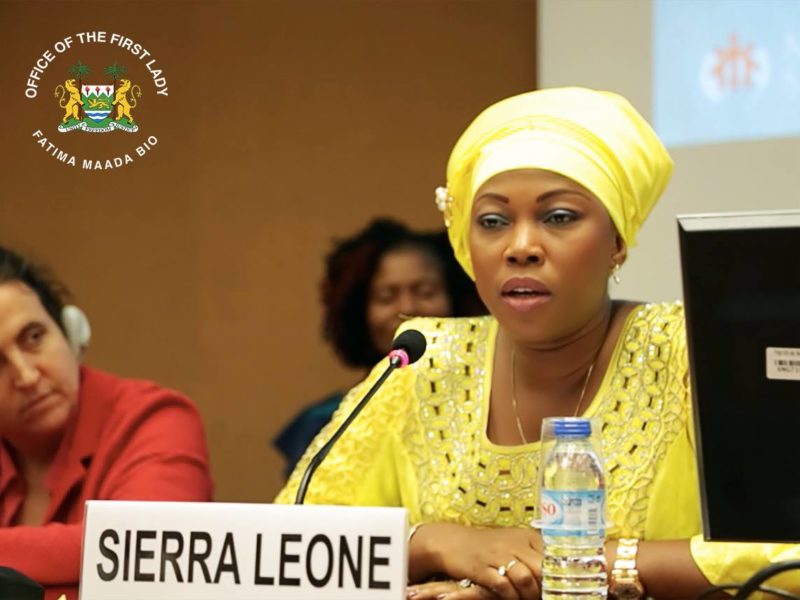Who Are You Fooling – Exposing the Tricks and Tricksters of Anti-FGM Campaigns
More than twenty years ago, circa 1994, I was sitting in a small seminar room in the heart of London, with about ten or so other people. The topic of discussion was the eradication of Female Genital Mutilation (FGM). Everyone, including me, seemed quite serious and rather perplexed listening to the moderator’s accounts of this horrific hitherto unknown crime against girls and women in Africa. A few minutes into the meeting, an East African looking woman burst through the doors, visibly shaken. She sat down in the back. As the moderator fielded questions from the meeting participants, the woman stood up, held up a huge poster with scotch-taped photos of a naked woman, eyes blindfolded and legs spread wide open. “This is what they did to me! These people did this to me. They ripped my body and butchered my genitals. I will never forgive the men who mutilated me like this, like a wild animal!!” What? I thought. Seriously? (Photo: Fuambai Sia Ahmadu, PhD, author)
The outburst reminded me of the gruesome posters of aborted fetuses with the words “baby killer” and “abortion = murder” that were thrust in my girlfriend’s face by far-right anti-abortion activists at the women’s health center I attended with her for her check-up and consultation. But the East African looking woman who sat behind me in the seminar room hurling words of hate and anger about her genital mutilation looked nothing like the anti-abortion activists who harassed me and my friend at the clinic in the U.S.
And I was no longer in America but was a wide-eyed, twenty-something year old postgrad in the U.K. I attended the seminar on FGM after seeing an announcement to join a group of people to discuss a new movement that was going to be launched to combat the practice. FGM was a term I only became familiar after arriving to the U.K. – I watched the TV documentary, Warrior Marks, that was co-produced by Alice Walker and my life was never the same again. I came to this FGM meeting to see for myself what was really going on. Female circumcision is mutilation? Seriously?
You see, at that time, just a few years earlier I had gone to Sierra Leone with some female relatives to be initiated into Bondo – a traditional women’s association that is known in much of West Africa. It was a powerful, positive experience (albeit physically painful) that shattered everything I thought I knew about female sexuality and being a woman of African, or more precisely Kono, descent. I was troubled by the Warrior Marks film, as well as the book by Alice Walker, Possessing the Secret of Joy, and the representations in both of African female initiation as “mutilation” and “torture”. I made up my mind to write a magazine story questioning this new FGM movement.
So, I walked into FORWARD’s office the next day to see if I could interview Efua Dorkenoo, the Ghanaian lady who was the office’s London director and had led the seminar the night before. When I opened the door, I nearly lost my balance in utter shock at what I saw. The woman sitting at the reception desk smiling at me was the same woman who had burst into the seminar room the night before. Except she didn’t look unkempt, disheveled and victimized. She was wearing a nice suit, fresh makeup and swept up hair. Where was the woman from the night before who acted like she came randomly off the street upon hearing that there was a meeting about this new movement to ban FGM? How can the crazed and desperate looking woman also be this quiet, friendly and attractive young lady working as front desk reception for the FORWARD office? Why did she misrepresent herself or fail to present herself properly to us bewildered seminar participants?
I finally did get to see Dorkenoo that morning. We talked for more than two hours. Sitting before Dorkenoo’s affable and maternal demeanor, I felt like I was talking to one of my aunts. I confided in her that I had been through Bondo and was circumcised but that I did not experience it as mutilation and that I didn’t know anyone in my family who would even recognize themselves as mutilated women.
Aunty Efua closed the door. She confided in me that she did not come from an ethnic group in Ghana that practices female circumcision so she could not really refute my experience. But, she said, the anti-FGM movement had already started. She said she understood where I was coming from – she knew many Sierra Leonean women who mentioned Bondo and that all of us seemed to say the same thing about empowerment. But, she emphasized, her hands were tied. Lots of money was being invested. She said she just accepted an offer for a consultancy at WHO. Perhaps I could join her as her research assistant. This would be good for my resume. Seriously?
Well, my reply was thanks but no thanks. I waved gingerly goodbye to the FGM “victim” at the reception desk and went on my way. I went on to publish my first article in 1995 in Pride magazine, a popular black women’s monthly, and defended the rights of circumcised women. Dorkenoo responded in an editorial in the following month’s issue repeating – now publicly – that she wanted me to join the anti-FGM camp. Thanks but no thanks.
Since then Dorkenoo has made a successful anti-FGM career for herself and has been decorated by the Queen of England for her great service to the crown. But, I see aunty Efua is still up to the same tricks she mastered at FORWARD – fooling a gullible, witch-hunt mode British population into seriously believing her ruses. This time, another East African lady, Leila Hussein, played the lead role of trickster to see how many people would sign a pro-FGM petition. They claimed and the British headlines followed suit, that 18 people signed Hussein’s request to protect her rights to her culture after she told them, “it’s just mutilation”. No one questioned whether the signatories were indeed random folks from right off the street and not partakers in the hoax (like the FGM victim/receptionist from 20 years ago).
My cynicism about Efua Dorkenoo and Equality Now is in no way to trivialize the experiences of African women who really feel they are victims of what they see as a cruel and outdated tradition. In fact, it is very likely that despite her Oscar like performance in the seminar room, the young East African female receptionist from 20 years ago was a genuine opponent of female circumcision.
Indeed, there are also some men who feel that neonatal male circumcision – whether traditional Jewish or Muslim procedures or routine medical surgeries – constitutes physical and psychological trauma and a violation of their human rights and they call it Male Genital Mutilation (MGM). I am not opposed to the rights of genuine dissenters to name their experiences and give voice to others who feel the same way. Giving voice to those who have been silenced is what I do now as an advocate for the majority of circumcised women. What I do contest and try to expose are the deceptions, manipulations and racist propaganda favored by anti-FGM campaigns.
As a supporter of both female and male circumcision, I believe it is time to denounce the flagrant racism and sexism that inspire anti-FGM campaigns, such as Equality Now, and anti-semitism that underlie MGM campaigns as well as the obvious Islamophobia that characterizes both anti-FGM and anti-MGM campaigns. If we are disgusted by the dubious tactics and demonizing language of radical Right to Life advocates, why do we tolerate the use of the same contemptible, psychological weapons against circumcised African women and girls who support their traditions?
We can and must work together as equals in a global society to promulgate global policies that do not discriminate against groups or individuals because of their gender, sex, ethnicity, country of origin, religion and so on. We must find solutions that do not deny the basic human rights of either supporters or opponents of non-medical genital surgeries.
After I politely refused Dorkenoo’s inducement back at the FORWARD office all those years ago she asked, “So, why don’t you launch your own counter movement?” That seemed like such a farfetched idea twenty years ago. But I guess life has its own way of working things out.
By Fuambai Sia Ahmadu, PhD Editor in-chief and co-publisher SiA and the Shabaka Stone Magazine Co-founder African Women Are Free to Choosewww.fuambaisiaahmadu.com
Stay with Sierra Express Media, for your trusted place in news!
© 2014, https:. All rights reserved.







Zeinab H
/
I like the idea of a pressure group that defends women’s right to undergo circumcision. Having experienced clitoridectomy in my native Egypt almost 20 years ago I share the writer’s view of the tradition as painful but liberating, and above all, not mutilation, and I fear the powerful lobby against the custom preventing my daughters from benefiting from it when the time is right.
19th February 2014